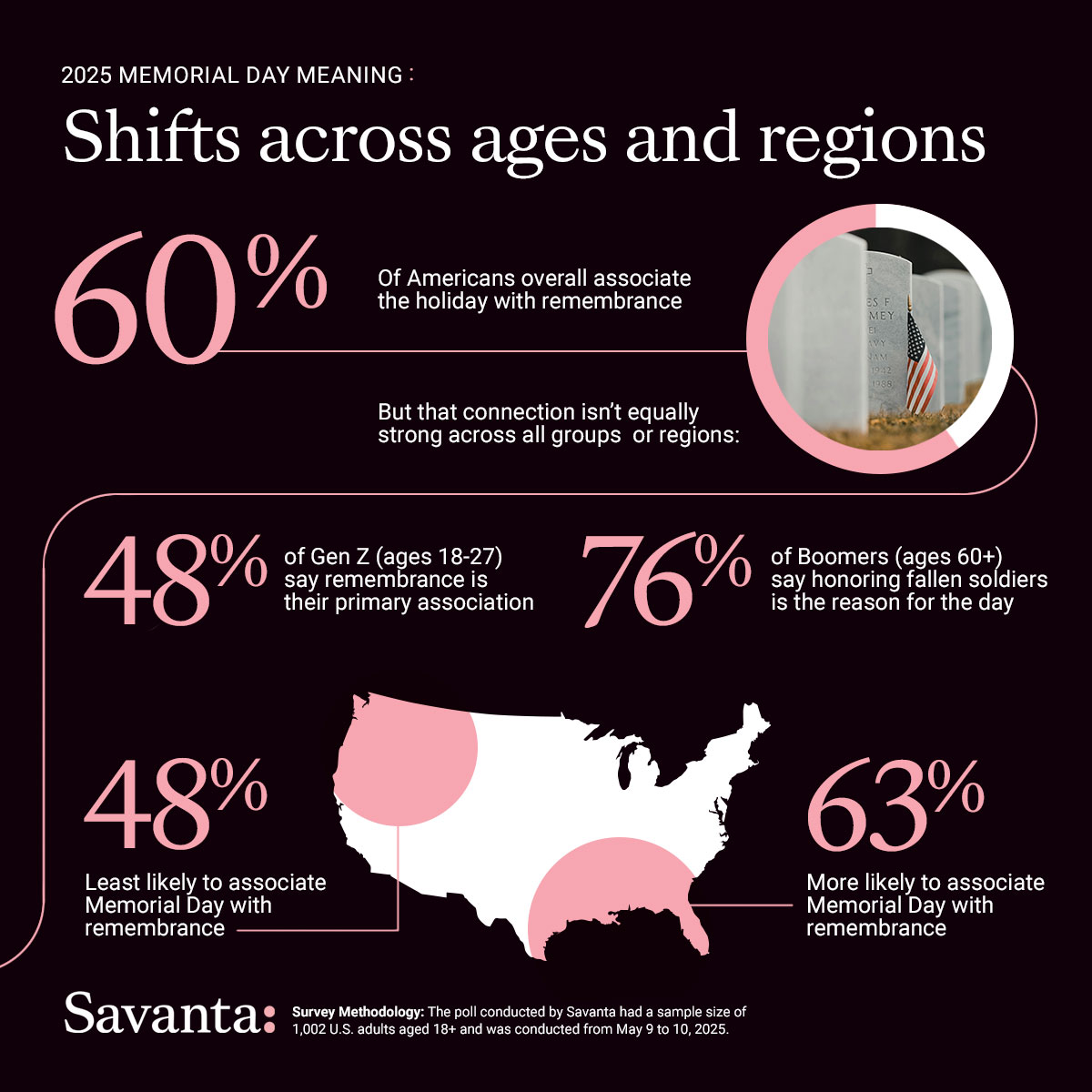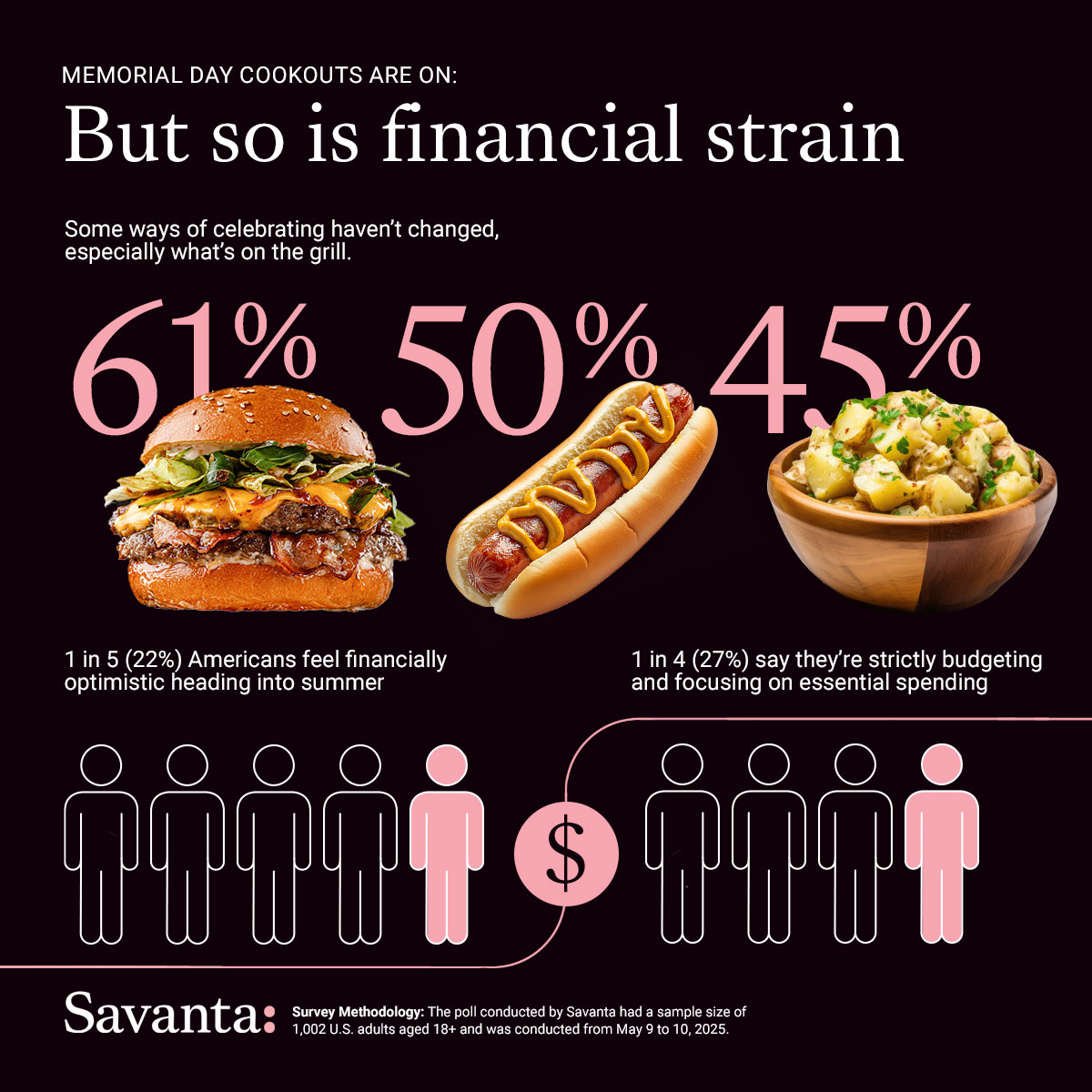
Memorial Day weekend is one of the most cherished holidays in America — a time for backyard burgers, road trips, and unofficially kicking off summer. But beneath the excitement of the long weekend lies a quiet tension. Many Americans are beginning to question whether the original purpose of the day, honoring fallen military members, has been overshadowed by celebration and convenience.
At Savanta, we recently surveyed over 1,000 U.S. adults to better understand what Memorial Day really means to people in 2025. What we found is a nation both holding on to tradition and quietly questioning what the holiday should represent.
Is Memorial Day losing its meaning?
When we asked people directly, 52% said Memorial Day has lost its original meaning. That’s a powerful stat, but it doesn’t mean the day no longer resonates. In fact, 60% still associate the holiday with honoring fallen military members, and 40% say they look forward to reflecting on the purpose of the day. Even more encouraging, 62% believe Memorial Day still brings people together, regardless of background or beliefs.
Meaning looks different by generation and geography
One of the most striking findings from the survey is how views on Memorial Day differ by age. Only 48% of Gen Z respondents (ages 19-27) said remembrance is the primary association with the holiday, while 76% of Boomers (60+) cited honoring the fallen as the main reason for the day.
This gap isn’t entirely surprising as older generations are close to wartime eras, whether through personal experience or family ties. For many Boomers, Memorial Day carries a weight of memory and proximity that younger Americans may not yet feel directly.
That generational divide is also reflected regionally. In the South, 63% of respondents associate Memorial Day with remembrance. However, in the Northeast, that number drops to 48%, with more respondents viewing it as the start of a long summer weekend.

Cookouts are on, but so is financial caution
Some rituals haven’t changed, especially what’s on the grill. Burgers (61%), hot dogs (50%), and potato salad (46%) still top the list of Memorial Day favorites. But underneath the surface, many Americans are facing financial strain.
Only 22% say they feel financially optimistic heading into summer. One in four (27%) say they’re strictly budgeting and focusing on essential expenses.
Even for those who plan to travel (24% of all respondents), the majority are keeping it affordable:
- 45% will stay with friends or family
- Only 18% will book hotels or resorts
- Dining is nearly evenly split between eating out (48%) and dining in (47%)
We also asked people how brands should behave around Memorial Day, and the message was clear: Be respectful. Be meaningful.
- 51% prefer retailers donate a portion of sales to veterans, rather than offer traditional discounts
- 64% say they’re more likely to support a veteran-owned business
- And 48% believe brands and influencers should stay quiet on Memorial Day unless they’re clearly acknowledging the military or the meaning behind the day

We see this as more than just consumer behavior. It reflects a growing cultural expectation: Americans want people and brands to treat Memorial Day as something worth honoring.
Our final thoughts…
Memorial Day in 2025 isn’t just about where people go or what they eat; it’s about how they feel. And right now, Americans are feeling a mix of pride, pressure, and a desire for deeper connection.
We can help with your next survey
We fielded this survey to a national audience of n=1,002 We have global access to consumers in over 95 countries to quickly field quantitative and qualitative surveys. We’d love to help with your next survey needs.





